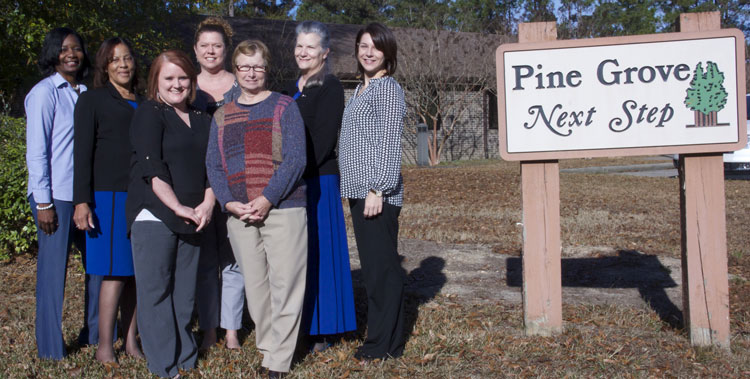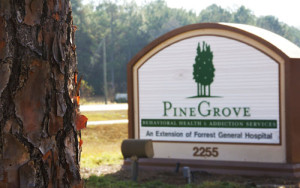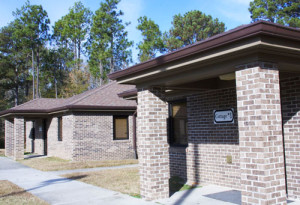By Issac L. Boose, M.Ed., LPC-S, LMFT, ICAADC
College students who seek treatment because of alcohol or drug dependency have to face reality head-on if they have any hope of making positive changes necessary to live a better life. Although the warning signs are always present, individuals who abuse alcohol and drugs tend to overlook them. With increased self-awareness, young people can learn to recognize the warning signs and make better choices before their lives spiral out of control. If addiction is present, it is important to note that by committing to a recovery program and developing a spiritual practice, most individuals are able to live productive and fulfilling lives. Additionally, young people, impacted by addiction, need a source of motivation to do the work that is critical to establishing a long-term recovery program.
At Pine Grove’s Next Step program, college students are often a part of our therapeutic community. It is not unusual for them to present for treatment with a great deal of denial around their alcohol or drug dependence regardless of the consequences. I have often noticed these young adults have created a fantasy of sorts about how life should go for them. Some young people have the impression college life should include lots of partying. Unfortunately, partying for some, involves alcohol and drug abuse. In treatment, they are introduced to the reality they can never use alcohol or drugs again. The thought of never being able to drink alcohol again creates a great sense of loss for these patients. It is frightening for anyone to hear the words, “I believe you’re an addict,” and this is the first step towards acceptance of the problem.

Next Step Team (L to R) Beverly Bryant, Insurance Coordinator; Vanessa Cox, Clinical Director; Stephanie Creele; Susan Hinton, Counselor Associate; Sharon Otts, Senior Clinical Therapist; Caroline Barnes, Clinical Therapist, Women’s Center; Marita Harris, Clinical Therapist
When someone—especially a twenty year old—hears those words for the first time, the shock can be so great they may put off addressing the issue until life becomes so unmanageable, they are forced to do something about it. It would help them to understand that we receive the information we need though our circumstances, and are often provided with the opportunity to change our behavior.
It usually works something like this. If you have issues with alcohol abuse, a friend or family member might inquire whether you believe you are drinking too much. Initially, most people brush this feedback off and revisit it when they come in contact with law enforcement and receive a DWI, for example. The DWI is additional evidence a problem exists. If you do not make productive changes afterwards the cycle continues—things like being asked to leave school or having your doctor tell you that your liver enzymes are elevated.
Prior to entering a treatment program like Next Step, most people will be given many opportunities to change their behavior. It is always more empowering to listen to the information you are receiving and to make a conscious decision to change on your own, rather than feeling like others are forcing you to change. Acceptance is not just about accepting you have a problem with alcohol or drugs. It is also about accepting the idea that you are receiving valuable information about your behavior all the time. Some people believe this information is guidance from their higher power. Acknowledging there is a power greater than us helps individuals develop a spiritual practice.
Spirituality plays an important role in a 12-step recovery program. It is also the source of resistance for some young people. It seems strange to these individuals, when the treatment team asks them to participate in a 12-step meeting or a book study for the first time. Through self-exploration, most individuals develop a spiritual practice that provides them with comfort and personal satisfaction.
In my professional experience, I’ve found the best motivation for young people to get sober is to set productive, personal goals for the future. Most young people have a bulletproof mentality where the fear of death is less of a motivator, compared to obtaining a degree and working in the field of their choice. Through self-examination, the conclusion is they will not be able to maintain their addictive behaviors and achieve their life goals. Focusing on positive milestones is important for people hoping to maintain a sober lifestyle on a college campus.
Supportive resources are a critical component of the recovery process and there are colleges and universities in our state that have taken the initiative to be active participants in that support system. The University of Southern Mississippi, Ole Miss, and Mississippi State provide support to recovering students through their Collegiate Recovery Communities, or CRC initiatives. These programs meet the needs of students in realistic ways. Young people are able to continue their education in a safe, healthy, and supportive environment.
I believe most of us want to protect young people from the harms and dangers of excessive alcohol and drug use, and I am also a believer in giving individuals the tools they need to take care of their selves. Treatment may be necessary for some people, and it does not mean the end of a student’s dreams of a college degree and successful career.
Issac L. Boose is a Licensed Professional Counselor, a Licensed Marriage and Family Therapist, as well as a Certified Advanced Alcohol and Drug Counselor. Boose is the Director of Pine Grove’s Next Step program, which treats men ages 18 through 54 who are struggling with substance abuse addictions. He is an active member of the Mississippi Association of Addiction Professionals. He has provided couples, family, group and individual therapy.



